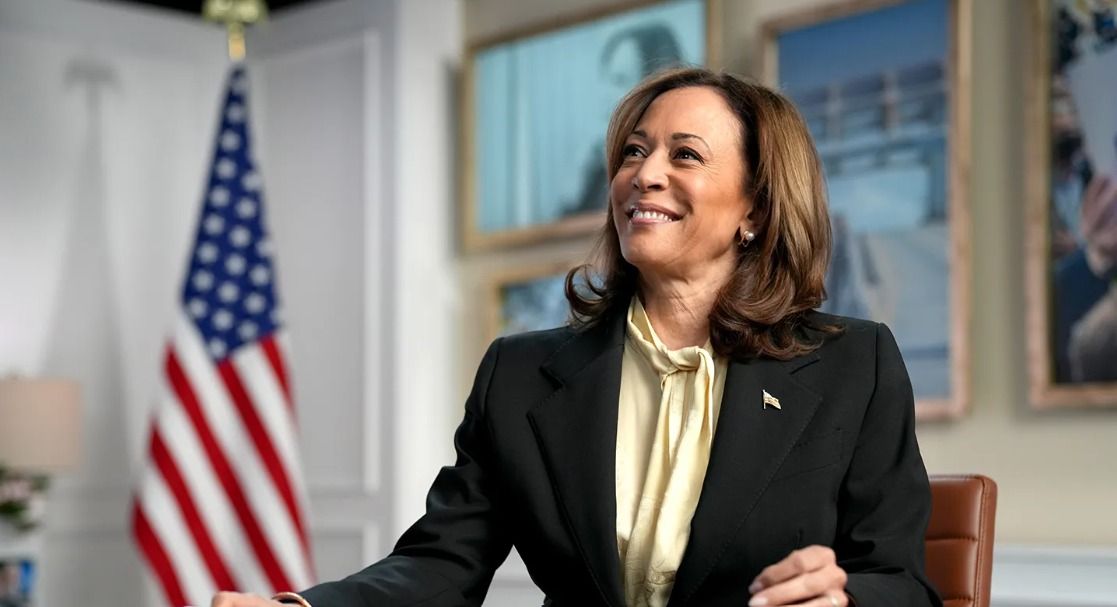Eighty-eight current and former top executives from corporate America have publicly endorsed Vice President Kamala Harris for president.
These endorsements, revealed in a letter shared with CNBC, come from high-profile leaders across various sectors, including technology, finance, and media.
Notable names such as Aaron Levie of Box, Jeremy Stoppelman of Yelp, and Michael Lynton, chairman of Snap, are among those expressing support for Harris.
The list also includes new endorsements from influential figures like James Murdoch, former CEO of 21st Century Fox, and Chris Larsen, co-founder of Ripple.
Tech and finance heavyweights back Harris
Executives from the tech and finance sectors make up a significant portion of the endorsement list for Harris.
From Silicon Valley, figures like Twilio co-founder Jeff Lawson and venture capitalist Ron Conway have added their names.
Similarly, Wall Street veterans such as Tony James, former president of Blackstone, and Peter Orszag, CEO of Lazard, have come forward to endorse her.
These endorsements are not just a show of personal support; they also highlight the alignment of these executives’ economic interests with Harris’s policies, especially as she has promised to advocate for fair and predictable business practices.
Many of the endorsers are former CEOs of some of the largest companies in the US, bringing decades of corporate experience to Harris’s camp.
Noteworthy supporters include Indra Nooyi, former CEO of PepsiCo, Barry Diller, chairman of IAC and former CEO of Paramount and Fox Inc., and Ken Frazier, former CEO of Merck.
These leaders argue that Harris is best suited to advance policies that ensure economic stability and the rule of law, which they see as crucial for a robust business environment.
What is the purpose behind the endorsement letter?
While the list of endorsers is lengthy, the actual endorsement letter is concise.
It emphasizes that electing Harris is the best way to maintain a strong and stable democracy and economy.
The brevity of the letter and the strategic timing—just days before the first presidential debate—suggest that its main goal is not to persuade undecided voters but to demonstrate a strong coalition of corporate backing.
This show of force is intended to influence perceptions of Harris’s capability to manage the economy effectively.
Harris’s economic agenda
Harris has been actively outlining her economic vision ahead of the upcoming presidential debate, proposing measures designed to stimulate small businesses and encourage private sector investment.
Her plans include increasing the tax deduction for startup expenses by tenfold to $50,000 and raising the top capital gains tax rate to 28% for individuals earning over $1 million annually.
This proposal strikes a balance between President Joe Biden’s proposed rate of 39.6% and the current 20%, aiming to foster more private sector investments.
On the other hand, former President Donald Trump has rolled out his own economic proposals, including reducing the corporate tax rate from 21% to 15% for companies manufacturing within the US.
Trump, too, has garnered support from notable business figures such as Howard Lutnick, CEO of Cantor Fitzgerald, and Elon Musk, CEO of Tesla and SpaceX.
This dynamic sets the stage for a critical debate on economic policy, as both candidates vie for the support of the business community.
The endorsements from these 88 executives serve multiple purposes.
Besides providing Harris with a platform to amplify her economic message, they also reinforce her credibility among the business elite.
For voters and investors, these endorsements could be a deciding factor in assessing which candidate is more likely to provide economic stability and growth.
As the race heats up, such shows of support may play a crucial role in influencing public opinion and, ultimately, the outcome of the election.
The post Yelp, Ripple CEOs among top executives endorsing Kamala Harris appeared first on Invezz

